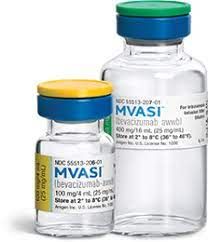- Bone Health
- Immunology
- Hematology
- Respiratory
- Dermatology
- Diabetes
- Gastroenterology
- Neurology
- Oncology
- Ophthalmology
- Rare Disease
- Rheumatology
Kaiser Permanente Study Demonstrates Equivalence for Mvasi
Investigators tapped health system data to conduct an observational, real-world comparison of bevacizumab (Mvasi) vs the reference product (Avastin).
An ongoing real-world observational study of bevacizumab biosimilar (Mvasi) vs originator (Avastin) has demonstrated comparable safety and effectiveness for a cohort of patients with metastatic colorectal cancer (mCRC) treated in a US integrated health care system (Kaiser Permanente), according to a poster presentation at the Academy of Managed Care Pharmacy (AMCP) 2021 meeting.
Patients were enrolled in the study based on initiation of biosimilar bevacizumab between July 1, 2019 and March 30, 2020 (n = 232) or initiation of bevacizumab reference product between July 1, 2015 and June 30, 2018 (n = 1128).
The primary end point was overall survival (OS) and mortality, and secondary end points were treatment persistence, defined as the total number of doses received, time between first and last dose, and the proportion of patients who switched to the reference product. Other secondary end points were the incidence of serious adverse events (SAEs) and hospitalizations and emergency department visits of any type.
Investigators said OS for the bevacizumab biosimilar cohort (82.8%) was noninferior to that of the reference product group (81.7%), based on a 4% margin of acceptability. They said that between the 2 groups, there were no significant differences in treatment persistence, SAEs, or hospitalizations and emergency department visits.
They said the study successfully captured real-world outcomes for patients treated with bevacizumab biosimilar immediately after the product was launched. They also said a strength of the study was its use of a large historical control group. Limitations of the study included that it was observational, which is not considered as reliable as a clinical study, and that it had a relatively short follow-up period, investigators said.
Reference
Pham C, Chiu T, Ekinci E, et al. Real-world evaluation of biosimilar bevacizumab-awwb versus bevacizumab in patients with metastatic colorectal cancer in a U.S. integrated healthcare delivery system. Presented at: AMCP 2021; April 12-16, 2021. Accessed April 23, 2021. https://amcpannual2021.pathable.co/organizations/7nYnTLzA3j3JZpccw#/?limit=10&sortByFields[0]=isPinned&sortByFields[1]=lastActivityAt&sortByOrders[0]=-1&sortByOrders[1]=-1&uid=pAcLoMw6BXog7ypr6
Newsletter
Where clinical, regulatory, and economic perspectives converge—sign up for Center for Biosimilars® emails to get expert insights on emerging treatment paradigms, biosimilar policy, and real-world outcomes that shape patient care.


